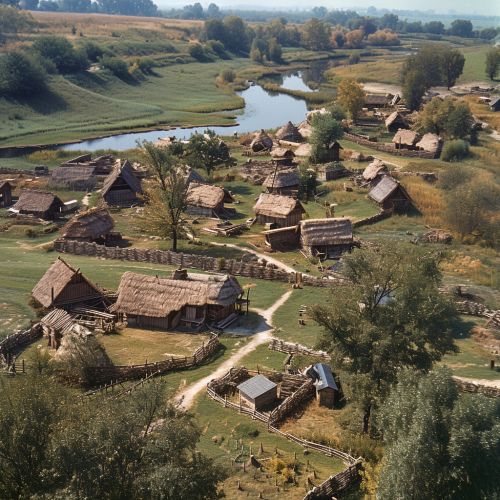West Slavic tribes
Origins and Early History
The West Slavic tribes are a historical group of Slavic tribes who inhabited Central Europe during the Early Middle Ages. As part of the larger Slavic ethno-linguistic group, they are associated with the migration period that reshaped Europe in the wake of the fall of the Western Roman Empire.


According to historical and archaeological records, the West Slavic tribes emerged in the 6th century AD in Eastern Europe. They expanded westwards into the vacuum left by the retreating Romans, settling in areas that are now part of modern-day Poland, Czech Republic, Slovakia, and Germany.
Language and Culture
The West Slavic tribes spoke West Slavic languages, a branch of the larger Slavic language family. These languages, which include Polish, Czech, Slovak, and Sorbian, are characterized by a number of linguistic features that distinguish them from the East Slavic languages and South Slavic languages.
Culturally, the West Slavic tribes were largely agrarian, with societies organized around fortified villages. They practiced a polytheistic religion, worshipping a pantheon of Slavic deities such as Perun, the god of thunder and lightning, and Veles, the god of earth, waters, and the underworld.
Political Organization and Warfare
The West Slavic tribes were not unified politically. Instead, they were organized into a number of independent tribes and tribal confederations. These tribes often engaged in warfare with each other, as well as with their non-Slavic neighbors.
Despite their lack of political unity, the West Slavic tribes were capable of mounting effective resistance against external threats. This is evidenced by their successful defense against the expansionist efforts of the Frankish Empire in the 8th and 9th centuries.
Christianization and the Formation of Medieval States
The 9th and 10th centuries saw significant changes in the West Slavic world. The most important of these was the process of Christianization, which began with the missionary work of Saints Cyril and Methodius in the 9th century.
The adoption of Christianity was closely tied to the formation of the early medieval states of Poland, Bohemia, and Moravia. These states, which emerged from the tribal structures of the West Slavic world, played a crucial role in the political and cultural development of Central Europe.
Legacy
The West Slavic tribes left a lasting legacy in Central Europe. Their languages and cultures continue to shape the region to this day. Furthermore, the states they founded played a key role in the historical development of Europe, influencing events from the Middle Ages to the present.
